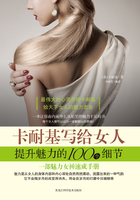When she had drunk two or three small glasses (for I had taken care not to have large ones), she poured the coffee into one of the two large cups. "This is yours," said she; "and this is your friends's; let them stand a little." She then observed our hands and our faces; after which she drew a looking-glass from her pocket, into which she told us to look, while she looked at the reflections of our faces. She next took a glass of wine, and immediately threw herself into a fit of enthusiasm, while she inspected my cup, and considered all the lines formed by the dregs of the coffee she had poured out. She began by saying, "That is well--prosperity--but there is a black mark--distresses. A man becomes a comforter. Here, in this corner, are friends, who support you. Ah! who is he that persecutes them? But justice triumphs--after rain, sunshine--a long journey successful. There, do you see these little bags? That is money which has been paid--to you, of course, I mean. That is well. Do you see that arm?"--"Yes."--"That is an arm supporting something: a woman veiled; I see her; it is you. All this is clear to me. I hear, as it were, a voice speaking to me. You are no longer attacked. I see it, because the clouds in that direction are passed off (pointing to a clearer spot). But, stay--I see small lines which branch out from the main spot. These are sons, daughters, nephews--that is pretty well."She appeared overpowered with the effort she was ******. At length, she added, "That is all. You have had good luck first--misfortune afterward.
You have had a friend, who has exerted himself with success to extricate you from it. You have had lawsuits--at length fortune has been reconciled to you, and will change no more." She drank another glass of wine. "Your health, Madame," said she to the Marquise, and went through the same ceremonies with the cup. At length, she broke out, "Neither fair nor foul. I see there, in the distance, a serene sky; and then all these things that appear to ascend all these things are applauses. Here is a grave man, who stretches out his arms. Do you see?--look attentively."--"That is true," said Madame de Pompadour, with surprise (there was, indeed, some appearance of the kind). "He points to something square that is an open coffer. Fine weather. But, look! there are clouds of azure and gold, which surround you. Do you see that ship on the high sea? How favourable the wind is! You are on board; you land in a beautiful country, of which you become the Queen. Ah! what do I see? Look there--look at that hideous, crooked, lame man, who is pursuing you--but he is going on a fool's errand. I see a very great man, who supports you in his arms. Here, look! he is a kind of giant.
There is a great deal of gold and silver--a few clouds here and there.
But you have nothing to fear. The vessel will be sometimes tossed about, but it will not be lost. Dixi." Madame said, "When shall I die, and of what disease?"--"I never speak of that," said she; "see here, rather but fate will not permit it. I will shew you how fate confounds everything"--shewing her several confused lumps of the coffee-dregs. "Well, never mind as to the time, then, only tell me the kind of death." The fortune-teller looked in the cup, and said, "You will have time to prepare yourself." I gave her only two Louis, to avoid doing anything remarkable. She left us, after begging us to keep her secret, and we rejoined the Duc de Gontaut, to whom we related everything that had passed. He laughed heartily, and said, "Her coffee-dregs are like the clouds--you may see what you please in them."There was one thing in my horoscope which struck me, that was the comforter; because one of my uncles had taken great care of me, and had rendered me the most essential services. It is also true that Iafterwards had an important lawsuit; and, lastly, there was the money which had come into my hands through Madame de Pompadour's patronage and bounty. As for Madame, her husband was represented accurately enough by the man with the coffer; then the country of which she became Queen seemed to relate to her present situation at Court; but the most remarkable thing was the crooked and lame man, in whom Madame thought she recognized the Duc de V-----, who was very much deformed. Madame was delighted with her adventure and her horoscope, which she thought corresponded very remarkably with the truth. Two days after, she sent for M. de St. Florentin, and begged him not to molest the fortuneteller.
He laughed, and replied that he knew why she interceded for this woman.
Madame asked him why he laughed. He related every circumstance of her expedition with astonishing exactness;--[M. de St. Florentin was Minister for Paris, to whom the Lieutenant of Police was accountable.]--but he knew nothing of what had been said, or, at least, so he pretended.
He promised Madame that, provided Bontemps did nothing which called for notice, she should not be obstructed in the exercise of her profession, especially if she followed it in secret. "I know her," added he, "and I, like other people, have had the curiosity to consult her. She is the wife of a soldier in the guards. She is a clever woman in her way, but she drinks. Four or five years ago, she got such hold on the mind of Madame de Ruffec, that she made her believe she could procure her an elixir of beauty, which would restore her to what she was at twenty-five.















